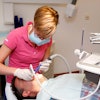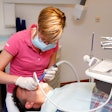
More adults are practicing proper oral care to avoid costly dental issues, desiring to save money and avoid unexpected expenses, according to the Delta Dental "2024 State of America's Oral Health and Wellness Report."
Additionally, preventing cavities, gum disease, and tooth decay is a major motivator, according to the report.
"It is encouraging to see the increased commitment to preventive oral health care at home and with the dentist," Dr. Joseph Dill, MBA, Delta Dental Plans Association's chief dental officer, said in a press release dated October 29.
During the past year, many people maintained dental hygiene practices in keeping with ADA guidelines. Approximately 75% met the ADA's brushing, rinsing, and flossing standards. The main motivators for brushing included protection against cavities, gum disease, and decay, while over 90% of respondents said they value long-term financial savings from these habits, according to the report.
Additionally, preventive dental visits have risen, with fewer unexpected dental appointments. This trend is expected to continue into 2025.
More adults see dental insurance as supporting their overall well-being. Nearly 88% of adults feel more secure with insurance for dental emergencies, with 85% saying it helps them save, and 84% saying it is worth the cost.
For children, parents are working to establish good oral hygiene routines. Nearly 3 in 4 kids brush at least twice a day (72%), and about half rinse (54%) or floss (50%) daily. However, parents cite obstacles, like sugary snacks and inconsistent habits, as challenges to maintain optimal oral health for their children, according to the report.
Delta Dental Plans Association partnered with Material Holdings for the report. From January 3 to January 17, 1,000 U.S. adults and 1,000 parents of children are 12 and under were surveyed through email invitations and online surveys.
"Being diligent with oral health care regimens is not only imperative to oral health, but it is a critical component of overall health, reducing the risk of chronic health conditions such as heart disease, respiratory disease, and diabetes,” Dill said.




















